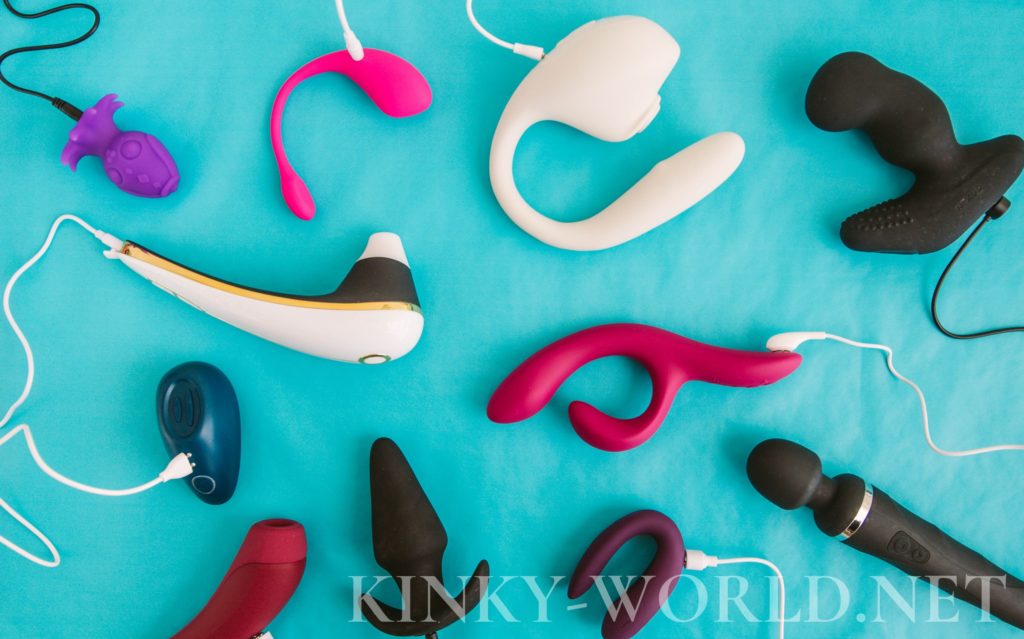
What is Sexual Performance Anxiety?
Essentially, whenever you get nervous, scared, stressed, or worried, it can make it harder for the brain to put the focus (and blood!) where you want it – in your erection. This means that the penis may not cooperate; it might stay flaccid when you’re otherwise mentally engaged, it might not get hard enough to “achieve” intercourse, or it may easily get flaccid when it was otherwise erect a few seconds ago.
While sexual performance anxiety can affect those with vaginas, it’s generally less-talked about because the act of intercourse can still be “achieved” – especially with sexual lubricants – even if it won’t be as pleasurable without the vagina in an aroused state.
Sexual performance anxiety is a particularly tough thing to deal with because of its cyclical nature. Like a lot of other things in sex (like pain during sex for vagina owners and other things), having a negative experience can reinforce the initial issue – which makes it even more likely that it will happen next time. In short, when you have anxiety about your sexual performance, you’re more likely to deal with the symptoms of that anxiety – like a penis that’s unable to get hard. This means the next time, in addition to the initial sexual anxiety you felt you also have the past experience that it didn’t work as expected, and now that compounds the entire problem. Over and over, this can happen, until the idea of anything aside from sexual performance issues can seem like a pipedream.
That being said, sexual performance anxiety is generally a “solvable” condition for many – at least, if your issues aren’t biologically-based and may be contributed to symptoms of erectile dysfunction. Sexual performance anxiety is generally used to imply that it’s an anxiety issue, so “remove the anxiety” and everything will go back to its pre-anxiety state. (Always easier said than done!)
Is Performance Anxiety Normal?
Yes!
Performance anxiety is an entirely “normal” human experience, and almost everyone has had it at some point or another. It happens often when someone is seeing a new partner – or otherwise feels an intense pressure to “perform” or “impress” their sexual partner. It can also happen often while drinking or other the influence of other drugs – even without the drug’s physical affects – because you worry what effects the drugs will have on the body. There’s that performance anxiety cycle all over again.
(Again, it’s not something you hear spoken about too often with vagina-owning individuals because their body’s uncooperative state doesn’t necessarily get in the way of intercourse. But it happens for people with vaginas too!).
That being said, sexual performance anxiety isn’t supposed to be a constant thing. If you’re finding that it’s plaguing your every sexual experience – especially with the same partner, over and over – you might consider sitting down and having a conversation with that partner. Sometime’s a partner’s biting comments – or unrealistically-high expectations – can cause constant performance anxiety in an on-going relationship.
Self-Pleasure – While Solo
The first thing you might want to do is journey into masturbation while alone. If you’re finding that your body responds how you previously had expected it to (with arousal, wetness, or erection), it’ll be easier to ascertain that your performance anxiety is just that – anxiety about performance with a partner.
If you’re finding it difficult to achieve your body’s aroused state while solo with no pressuring factors on you (including any you put on yourself), you might consider skipping down to the “See a Doctor” section – as it’s more-likely to imply that your “sexual performance anxiety” may have some biological causes – not just anxiety-based ones.
(Even so, consider masturbating a couple times over awhile might better help you ascertain things. It’s still very possible to experience sexual performance anxiety while solo if you’re worried about you’re own body.)
It Might Be Temporary
Alternatively, it helps to remember that your sexual performance anxiety may be entirely temporary. In fact, in some encounters, it’s downright normal! It’s perfectly normal to experience some sexual performance anxiety the first times you’re with a new partner – or when you’ve had a body or life-changing event that might affect how your downstairs bits perform.
For example, when my partner experienced a testicular injury, it took a couple weeks of low-key sexual activity because his fear of whether his penis was permanently injured would overtake his ability to get an erection – and that’s totally okay! Some performance anxiety may be temporary, and it’s really important to remember that (and ensure that your partner is understanding.)
Communicate with your Partner
It’s very possible that your partner may be a leading factor in your sexual performance anxiety. Some partners can be particularly demanding – or may have made (unintentionally) anxiety-inducing comments about your body’s responses during sex. You may want to sit down and have a conversation with your partner to help alleviate some of the concerns that might be driving some of your sexual performance anxiety.
Some good questions to ask may be:
- What sex acts do you find most fulfilling during our sexual encounters? (Making out, kissing, oral sex, handjobs, fingering, anal sex, pegging, rimming, intercourse, etc.)
- When you want to have sex, what usually spurs your interest? (Intimacy, orgasmic resolution, boredom, wanting to feel close, missing me, etc.)
- What sexual sensations tend to feel most orgasmic? Are there any sex toys that can help provide that?
- Are you open to using sex toys in the bedroom – especially if you and I select them together to find things that work for you? If you aren’t, what can we do that would make it feel more comfortable?
- If I’m having problems achieving intercourse/erection/wetness, is there something else we can do in its place that would leave you satisfied?
- Can you let me know what things I do well during sex? I’m feeling a bit insecure about my prowess, and it’d really help.
These questions essentially allow you to figure out a few things: what your partner truly finds important and most-fulling during sex, if they’re open to alternatives for sexual pleasure during intimate moments, and help reassure you about the things you’re doing well. You may also want to talk about any sexual performance anxieties you have in mind, ask for their support in doing things that work best for you, and have conversations that might encourage the two of you to best support your sexual performance anxiety to a point where it may go away – or be much less of an issue.
For example, if your partner states that they usually want sex in order to feel intimacy, you might find that a long cuddling session with compliments might help fulfill some of those needs. If your partner finds oral sex sensations most orgasmic, you can easily pivot to oral sex when your body isn’t cooperating that day to still leave them satisfied.
Especially in long-term, romantic relationships, thorough conversations like this – where you show some vulnerability – can increase your intimacy, closeness, and bond – and lead to better sex. Win-win!
Consider Alternatives
One way to help your partner be more understanding is ensuring that the two of you have ways to enjoy pleasure that aren’t centric on the body parts that might be affected by sexual performance anxiety.
If you’re concerned that performance anxiety is something you might deal with in a future encounter with a partner, consider flushing out your ideas of “sex” long before performance anxiety may pop up. That is, “sex” doesn’t have to be penis-centric (or insertion-into-vagina-centric!), so the idea that your functioning parts are the be-all, center-point of all sexual experiences is, well, inaccurate. There are lots of ways to enjoy sexual pleasure and intimacy with your partner without involving your penis – and for a lot of partners, there may be more pleasure involved when the penis isn’t the centerpoint!
There are lots of sexual activities (that may or may not end in orgasm; you might be seeking sexual pleasure for the intimacy and closeness rather than the “orgasmic finish) that can be done without inserting a penis into a vagina. Here are some options:
- Oral sex on either partner
- Grinding against one another
- Making out while grinding – almost like teenagers
- Telling each other sexual stories and dirty talk while either of you touch yourselves in a way that feels good
- Handjobs and clitoral fingering – erections aren’t required for handjobs to feel good!
- Sex toys! Many non-erect penises can orgasm through powerful vibrations – and vibrations on a clitoris can be orgasmic too!
- Naked cuddling with “rules” in place to not use your hands. You can only show your desire through body movements and your mouth.
- Anal pleasure. As long as the body is relaxed (which may or may not be a thing in your case), the anus may not be impacted by sexual performance anxiety.
- Hot and heavy making out in a car – or other appropriate “public” areas
- A “first date night” where anything past second base is agreed “off-the-table” after a good night together focused on connection – no genital performance anxieties possible there!

There’s Always Cock Rings
Cock rings (or penis rings) – whatever you want to call them – have been around for a long time. Essentially, this tight piece of material goes around the base of the shaft (or around the very-base underneath the testicles too!). This tightness helps “trap” blood within the penis – that blood that contributes to getting an erection. Essentially, cock rings can make it easier to achieve an erection – which might help your body.
If you’re going to start experimenting with cock rings, I recommend starting with a super-stretchy (usually TPR material) to begin. This super-stretchy material won’t be as constrictive, but it will be easier to take on and off – and get used to the feeling of a cock ring. Once you have more experience under you belt, you can always move towards a silicone cock ring – which will be more constrictive but harder to take off and put on. With experience, some people like to use metal cock rings, too, but they’re the hardest to use.
As cock rings clearly change your body’s natural circulation (which is their point), you should be cautious while using them and stick to 15 minutes to 30 minute use sessions. If anything starts feeling tingly or painful, take it off immediately. It’s supposed to feel snug and constricting (like a tight condom) – not painful.

Consider Always-There Alternatives
For some couples, the intercourse is the “culmination” of their sexual experiences, and they like it that way! If you and your partner know that intercourse is important for you, it might be time to look into some alternative options to always ensure that intercourse is always on the table.
For example:
A strap-on harness will allow you to strap-on a dildo to quickly jump in when your body may not be cooperating. Not only is a strap-on harness available at a moment’s notice (so when performance anxiety issues hit you unexpectedly, you can quickly pivot without interrupting the mood), but it also allows your partner to choose their favorite dildo/penis shape that day. They might want more prostate or g-spot stimulation, and they can easily choose a dildo that provides the exact stimulation their body wants too. Plus, you never have to worry about orgasming too early again with a strap-on harness! (If your partner likes the feeling of the final, ejaculating explosion, some silicone ejaculating dildos will allow you to replicate that.)
A penis masturbation sleeve will offer a semi-realistic experience if your vagina may not be cooperating. Warmed up and with a bit of lube, it can be a fantastic, shared sexual experience that will help your partner orgasm and still encourage both of you to be intimate.
Some penis extensions will also provide a faux erection that allows your penis to still be involved in the action. Most of these penis extensions slide on top of the penis – and some transmit sensations and pleasure through the material as you use the penis extension on your partner. Some penis extensions use a strap-on harness (which allows them to be used while fully flaccid) while other penis extensions require a partial erection to help hold them in place. You’ll want to choose the option that works best for you and your body.
Not only do these options mean that you can transition into intercourse when your penis or vagina isn’t cooperating that day, but it also can take some pressure and stress off your shoulders – which might help solve the performance anxiety in the first place!
(You may need to have a conversation with your partner about exploring sex toys or other sexual alternatives before springing these options on your partner, mid-sex. Not everyone is comfortable with the idea of sex toys – especially when they’re a surprise – but they can drastically increase sexual pleasure.)
Consider Hiring an Escort
If you don’t have a partner, then one thing you could do is consider hiring an escort or sex surrogate. The right one will be attentive to you and will be willing to work with you through nervousness or anxiety. More importantly, you won’t have to worry about them “leaving” due to performance issues, and most are there to please you during the experience, so it allows you to focus on self-healing about your anxiety instead of partner dynamics. All this allows you to experience how your body operates, get over some of the anxieties you have around sex, and experience sex with someone who is likely much-more-experienced with sexual acceptance than a random dating partner you might find.
If you’re looking for professional escorts in Perth, you can find Perth escorts at Escorts AU. All of these escorts have been hired by the company and they take recruiting very seriously. Working with a reputable service where escorts and sex surrogacy are legal also ensures that you won’t have unpleasant surprises or end up getting scammed.
(When arranging with an escort or sex surrogate, make sure to explain your concerns, your anxieties, your worries, and make sure that your potential partner is open to helping you work through those issues. Most are, but it’s always good to be upfront, so they know how to best help!)
Go See a Doctor
It’s difficult to fight performance anxiety if you don’t know the source. Unfortunately, our bodies don’t have diagnostic panels.
Sometimes, your body’s uncooperative state might be because of a biological issue. If that’s the case, a doctor will help figure that out. They’ll ask about your lifestyle (diet, exercise, and drug use are some of the biggest contributing factors to sexual function) as well as inquire about other symptoms that are popping up. They may run tests or ask you to run tests on-your-own. In the end, you might end up with a diagnosis – and may end up with medication to help.
In other cases, it might be psychological that you will have difficulty “solving” on your own. A psychologist or counselor may be able to help you through discovering where the mental blocks lie – and how to work through them.
Realign your Expectations
If you’re looking at every sexual encounter as needing to end in intercourse after perfectly providing six different sex positions for at least 2 minutes each (or any other porn-induced trope), you’re going to find yourself a lot more suspectible to sexual performance anxiety. Essentially, because your brain has an “ideal” that you may or may not be meeting, there’s already an anxiety in-place – because you have to “meet” that ideal.
This means you really need to stop and take a look at your sexual expectations – especially if you’re seeking how to break the cycle of sexual performance anxiety. Talking to your partner can really help with this one – especially if it’s a constant partner you’re intimate with on a daily basis. You might find that what your partner prioritizes (like closeness, an orgasm, feeling desired, etc.) are not-at-all congruent with these expectations you’ve been putting on yourself – and there are generally lots of ways to meet someone’s needs – no matter what their “end goal” is.
These are just a few things that you can do if you’re suffering from crippling performance anxiety. The most important thing to remember is that communication is key, and to seek help where necessary.








